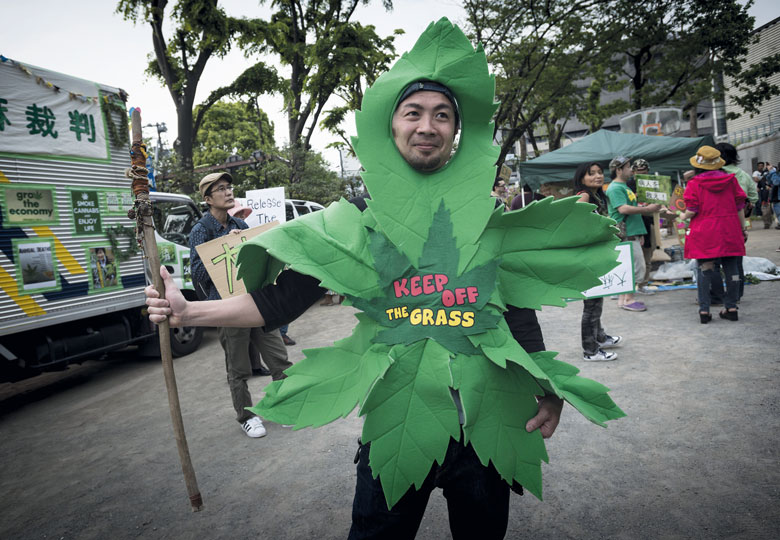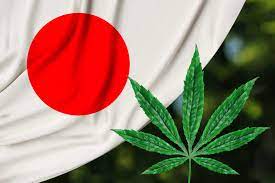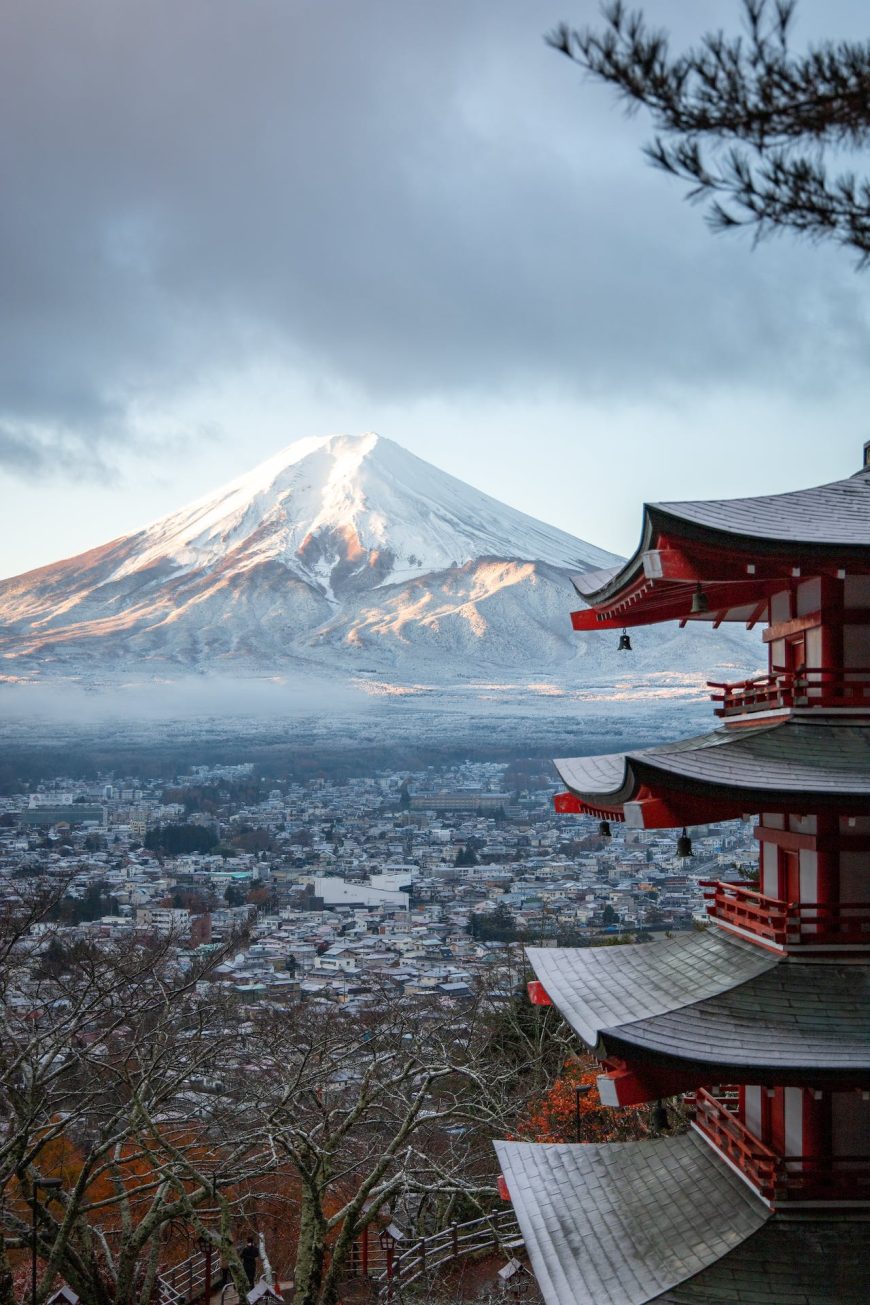Learn about Historic Cannabis Laws in Japan, and The Major Shifts That Are Set to Take Place
Japan has traditionally been staunchly against the use of cannabis, whether medicinal or recreational. However, the island nation is preparing to make a historic move by potentially legalizing medicinal cannabis. Read on to learn more.
Is Cannabis Legal in Japan As of Now?
The Cannabis Control Act in Japan, enacted in 1948, plays a significant role in regulating the cultivation, possession, transfer, and import/export of cannabis plants and products. While this legislation does not explicitly mention the “use” of marijuana, it imposes severe penalties for violating any of its provisions. Those found guilty can face up to 10 years in prison and hefty fines of up to ¥3 million ($21,100).
In contrast, the Stimulants Control Law in Japan clearly prohibits the use of stimulants like amphetamines and methamphetamine. This distinction highlights the government’s strict stance on recreational drug use, including marijuana.
Recreational Cannabis Legalization is Unlikely
Given the current circumstances, the chances of legalizing recreational cannabis usage in Japan are quite slim. The country’s health ministry panel released a report in 2022, stating that the spread of cannabis could potentially lead to depression and suicidal tendencies.
The report emphasized that the lack of penalties for marijuana use has contributed to its abuse, particularly among the youth. The statistics provided in the report show that only a small percentage, around 1.4% of the population in Japan, have used cannabis in their lifetime, in stark contrast to the 20% to 40% seen in Western countries.
It is important to note that the report’s findings and the low prevalence of cannabis use in Japan contribute to the government’s decision to maintain a strict ban on recreational marijuana. These factors underline the authorities’ concerns about the potential negative impact on public health and societal well-being.
Violaters are Prosecuted
The recent high-profile arrest of a third-year student at Nihon University for alleged possession of marijuana and an illegal stimulant drug has once again brought attention to the issue of drug use among students in Japan. This incident took place in the university’s dorm room for members of the American football club, to which the accused student belongs.
Unfortunately, this is not an isolated case. Just a few days prior to this incident, three male members of the rugby team at Asahi University in Gifu Prefecture were arrested for allegedly selling marijuana online for profit. And in July, two members of the Tokyo University of Agriculture’s boxing club were apprehended on suspicion of possessing dried marijuana with the intent to sell it. These cases highlight the growing concern over drug use and distribution on university campuses in Japan.

What is the Loophole in Current Cannabis Related Laws in Japan?
Despite the stringent cannabis laws, there is a legal loophole that is allowing Japanese consumers to experience a similar “high”. This is particularly thanks to the realm of CBD products. These products, derived from cannabis stalks and seeds without THC, have gained momentum over the past decade. In fact, the CBD industry in Japan is estimated to be worth over 18 billion yen ($124 million) in 2021 and is projected to skyrocket to 83 billion yen ($574 million) by 2025.
The Market is Getting Out of Hand with Unregulated Synthetic Cannabinoids Becoming Prevalent
However, Japan’s strict stance against cannabis has led to some unintended consequences. In an attempt to circumvent the ban on THC, unregulated synthetic cannabinoids have emerged in the local market. These “loophole herbs,” as they are known in Japan, are designed to produce similar psychoactive effects to THC, without actually containing the banned substance. While there are some health concerns surrounding these synthetic cannabinoids, their popularity has soared in recent years.
Authorities in Japan have been playing a game of regulatory catch-up, attempting to ban these derivatives one by one. Just recently, a ban on THCH was implemented, leading CBD shops to quickly remove products containing the synthetic drug from their shelves. However, CBD sellers are not overly concerned about these bans, as they have become accustomed to working around them. When one derivative is banned, they simply restock with other alternatives that offer the same high but have yet to be prohibited.
The proliferation of these unregulated synthetic cannabinoids highlights the challenges Japan faces in controlling the cannabis market on the ground. While the government maintains a staunch anti-weed stance, green businesses continue to find ways to operate within the boundaries of the law. It’s a constant tug-of-war between regulators and the ever-evolving cannabis industry.
What is Japan’s Stance on Medicinal Cannabis, or Medical Products made from Cannabis?
The landscape surrounding cannabis in Japan is undergoing a significant transformation. While medical products derived from cannabis are currently illegal in the country, the government is considering legalizing them in limited settings. This potential change stems from the recommendations of a health ministry panel, which proposed lifting the bans on prescription medicine made from cannabis, such as Epidiolex.
Medicinal Cannabis Products are Being Tested
Epidiolex, marketed by Jazz Pharmaceuticals’ subsidiary in Japan, GW Pharma, is currently being tested in clinical trials to address rare seizure disorders. This development highlights the growing recognition of the potential therapeutic benefits of cannabis-based medications.

Government Parties Have Been Discussing Medicinal Cannabis Legalization
In its October 2022 deliberations, a panel of experts convened by the Ministry of Health, Labour, and Welfare reached several crucial conclusions regarding the future of medicinal cannabis. Firstly, the use of cannabis as an ingredient in pharmaceutical products will be legally permissible. This decision opens the door for the development and availability of cannabis-based medications for various medical conditions.
Acknowledging Therapeutic Applications of CBD
Secondly, the panel recommended that the manufacture and distribution of cannabis products, including those containing CBD, be legal as long as the THC content remains below a certain concentration. This move acknowledges the value of CBD and its potential therapeutic applications while emphasizing the importance of regulating the psychoactive component, THC.
Potential for Commercial Cannabis Cultivation Licenses
Furthermore, the government discussed the potential to grant cultivation licenses for commercial purposes, allowing the production of cannabis plants with a low THC concentration. This step paves the way for the cultivation of cannabis for the manufacture of various cannabis products, provided that the THC content remains within the specified limits.
Historic Moment in Japan: Move to Legalize Cannabis-Derived Drugs
In November 2023, Japan’s Lower House passed a new bill to legalize medical products made from cannabis. The bill was sent to the Upper House on the same day, and if it is approved there, the proposed changes will likely go into effect by the end of 2024.
This bill marks a significant step forward in the country’s approach to cannabis, specifically for medicinal use. The bill focuses on products containing cannabidiol (CBD), an active ingredient derived from the cannabis plant. One such product is Epidiolex, which has already received approval in the United States and Europe for the treatment of severe epilepsy.
Under this new legislation, cannabis will be classified as a banned substance under the Narcotics and Psychotropics Control Law. Violations of this law could result in up to seven years of imprisonment. While the bill supports the clinical use of cannabis-based medicines, it also aims to crack down on illicit use, possession, and abuse of cannabis.
Recreational Cannabis Usage is Still Not Allowed
It is important to note that the government of Japan remains opposed to the recreational use of marijuana, citing concerns about its potential as a “gateway drug” to other illicit substances. However, medical experts have differing opinions on this theory. Nonetheless, the focus of this bill is on the medicinal usage of cannabis, rather than its traditional methods of consumption.
Potential Minor Loophole in the Proposed Bill
Interestingly, the cannabis control law avoids referencing cannabis use directly, in order to protect hemp farmers who have a long-standing tradition of cannabis farming for its fiber. This approach ensures that these farmers will not face criminal prosecution if they accidentally inhale cannabis while harvesting the plant.
How to Get a Cannabis Cultivation License in Japan
The current status quo regarding cannabis licensing in Japan is quite restrictive. Under the Cannabis Control Act, no cannabis product can be legally manufactured or produced. However, there is a provision for obtaining a license for the cultivation of cannabis plants specifically for collecting fiber or seeds. Licensed cultivators are required to harvest the cannabis plants by separating only the mature stems or seeds and disposing of all other regulated parts within their cultivation area.
Cannabis Cultivation Licenses are Granted by Governors of Local Prefectures
To apply for a cultivation license, individuals or organizations must submit an application to the governor of the prefecture where the cultivation area is located. The duration of a cultivation license is limited to one year and must be renewed annually.
The processing time for a license application can vary depending on the prefecture, ranging from 15 days to 60 days. The application fee typically amounts to less than JPY10,000.
Licenses are Difficult to Acquire As of Now
It is worth noting that obtaining cultivation licenses in practice is challenging, as many prefectures are hesitant to grant them. Licenses are generally only granted when the purpose of cultivation serves a clear social benefit, such as for manufacturing products used in traditional Japanese culture.
Update to Cannabis Licensing Process is Likely
However, there are exciting developments on the horizon. In November 2023, Japan’s Lower House passed a new bill to legalize medical products made from cannabis. This amendment not only opens the door for the legalization of medical cannabis but also signals a shift toward promoting hemp cultivation in Japan.
Under this new bill, Japan will change the current Cannabis Control Act to the Law Concerning Regulation of the Cultivation of Cannabis Plants.
Potential for Two Types of Cannabis Cultivation Licenses
This change will result in the issuance of two types of grower licenses. One license will allow farmers to grow and harvest industrial hemp, while the other license will be specifically for the production of cannabis intended for medical or pharmaceutical use. The former license is already available, while the latter has been newly introduced.
This change in legislation reflects Japan’s rich historical connection to hemp cultivation, which has been used for fabric production, food seasoning, and religious practices.
Large-Scale Cannabis Cultivation Licensing Process Changes Expected as a Result of the New Bill
In the lead-up to these new amendments coming into effect by the end of 2024, the cannabis licensing process will likely significantly evolve in order to support the growth of this new market. The Japanese government aims to increase the number of cultivation licenses in the country, enabling farmers to cultivate industrial hemp and produce cannabis for medical and pharmaceutical purposes. This shift toward legalization and regulation will not only reduce Japan’s reliance on imported cannabis products but also promote domestic cultivation and production.
How GrowerIQ will be Able to Help Cannabis Cultivators in Japan
GrowerIQ’s seed-to-sale cannabis software is the ultimate solution for Japanese cannabis cultivators looking to streamline their operations, ensure compliance, and simplify reporting. With its GACP and EU GMP compliant software, GrowerIQ enables cultivators to maintain global manufacturing standards, giving them access to every market on the planet. This powerful software offers a comprehensive set of tools and features, including inventory management, cultivation planning, quality control, and traceability.
Discover how GrowerIQ’s seed-to-sale software can help you set up all of the administrative components of a successful cannabis cultivation operation, without any hassle. Questions we haven’t covered? Please reach out and let us know. GrowerIQ serves clients coast to coast, and we’re ready to help your team today.
Streamline Cannabis CultivationAbout GrowerIQ
GrowerIQ is changing the way producers use software - transforming a regulatory requirement into a robust platform to learn, analyze, and improve performance.
To find out more about GrowerIQ and how we can help, fill out the form to the right, start a chat, or contact us.

